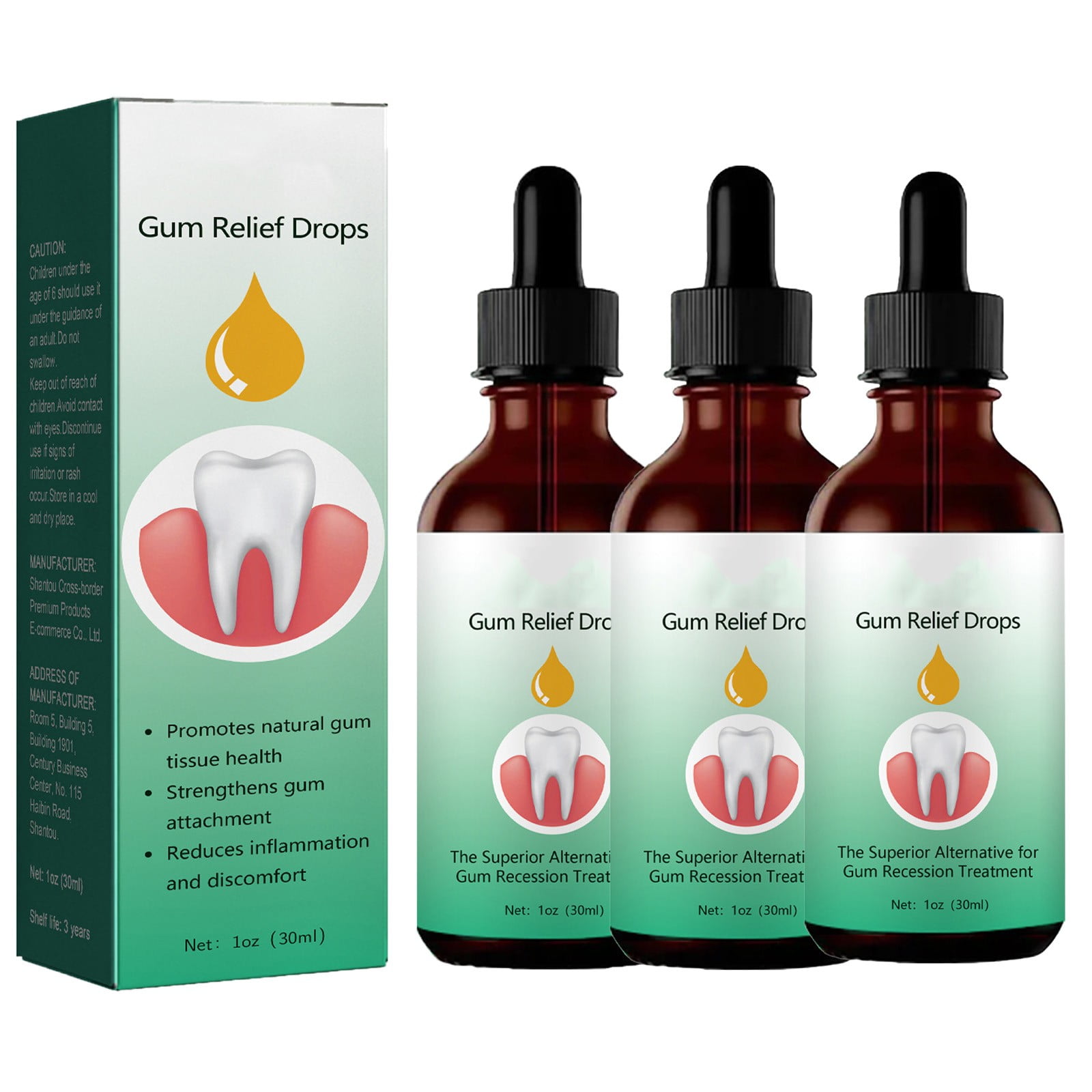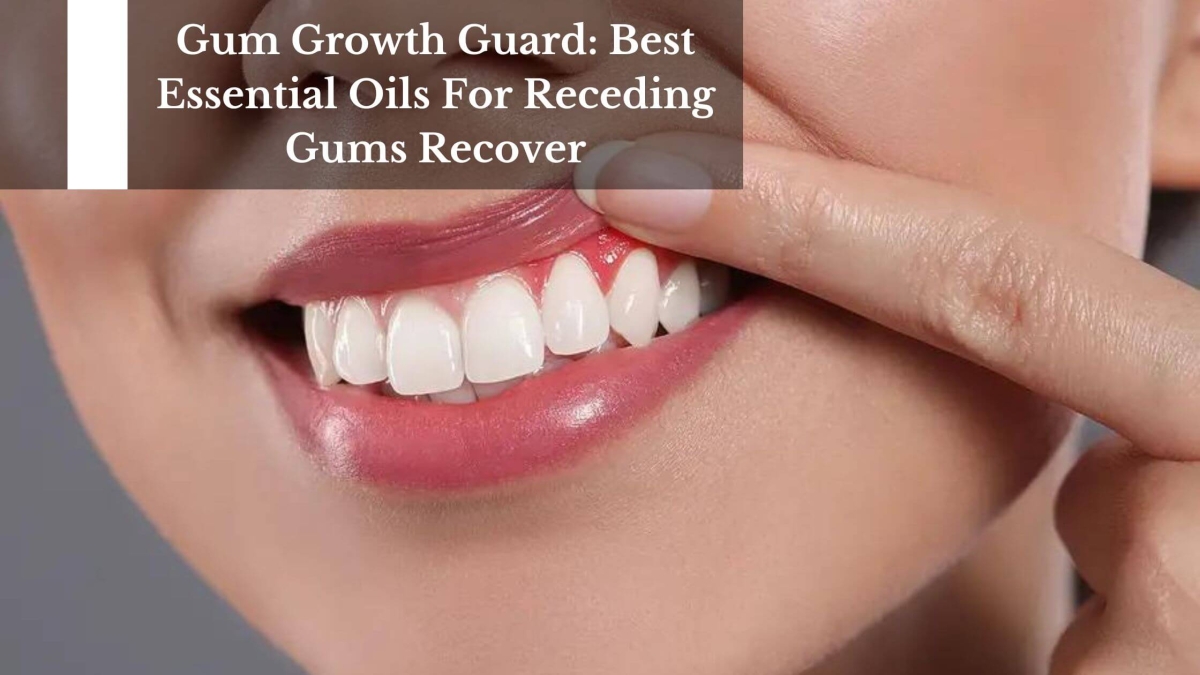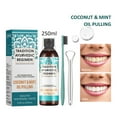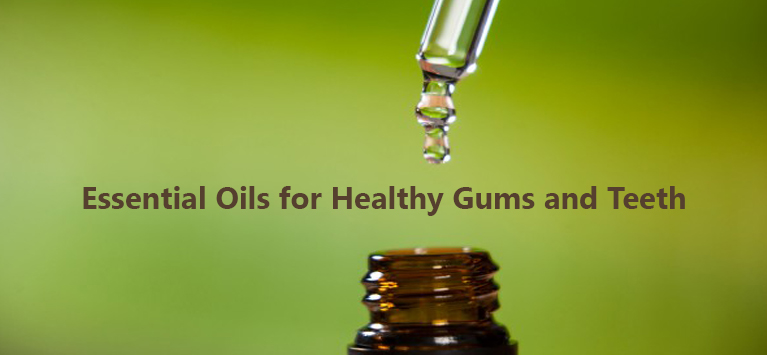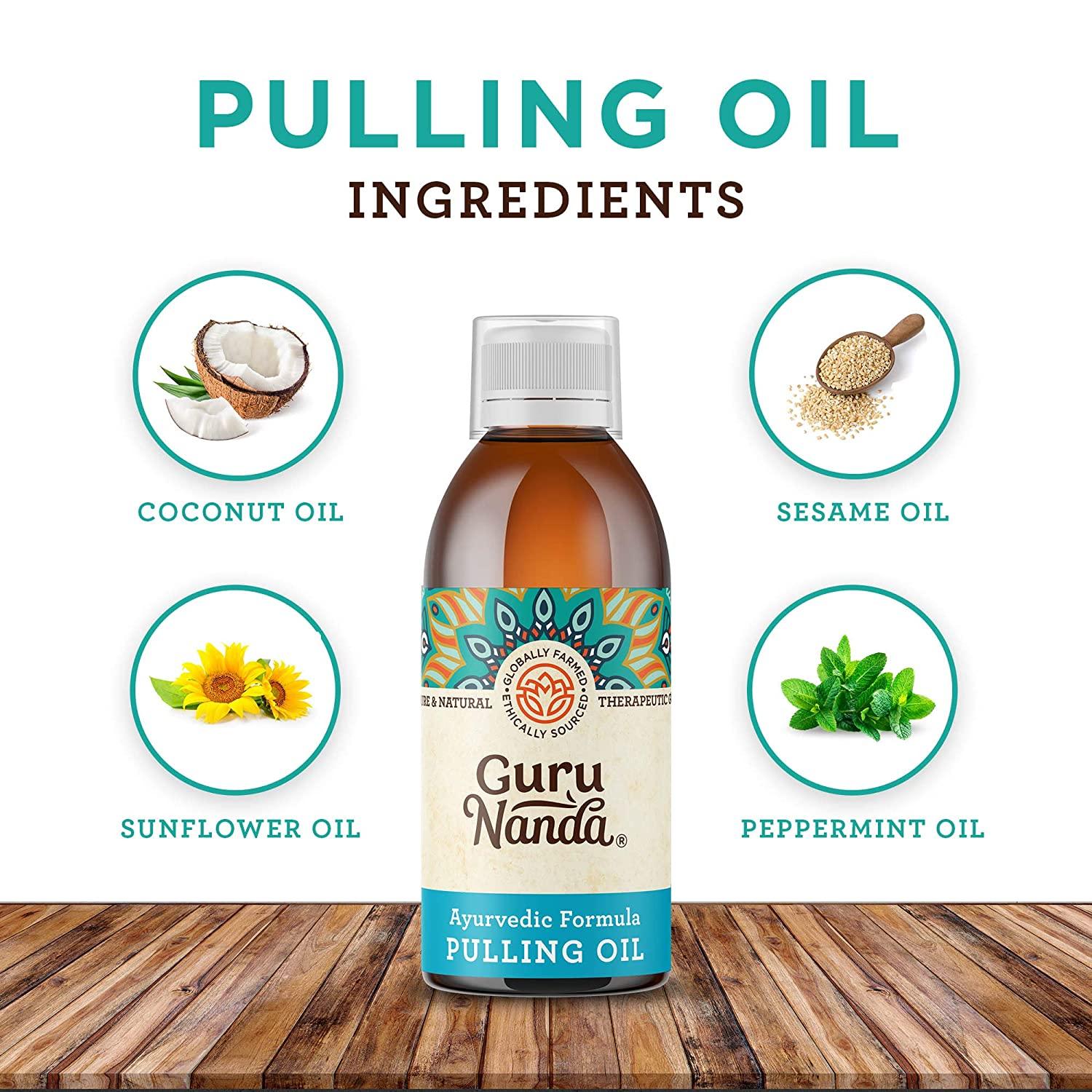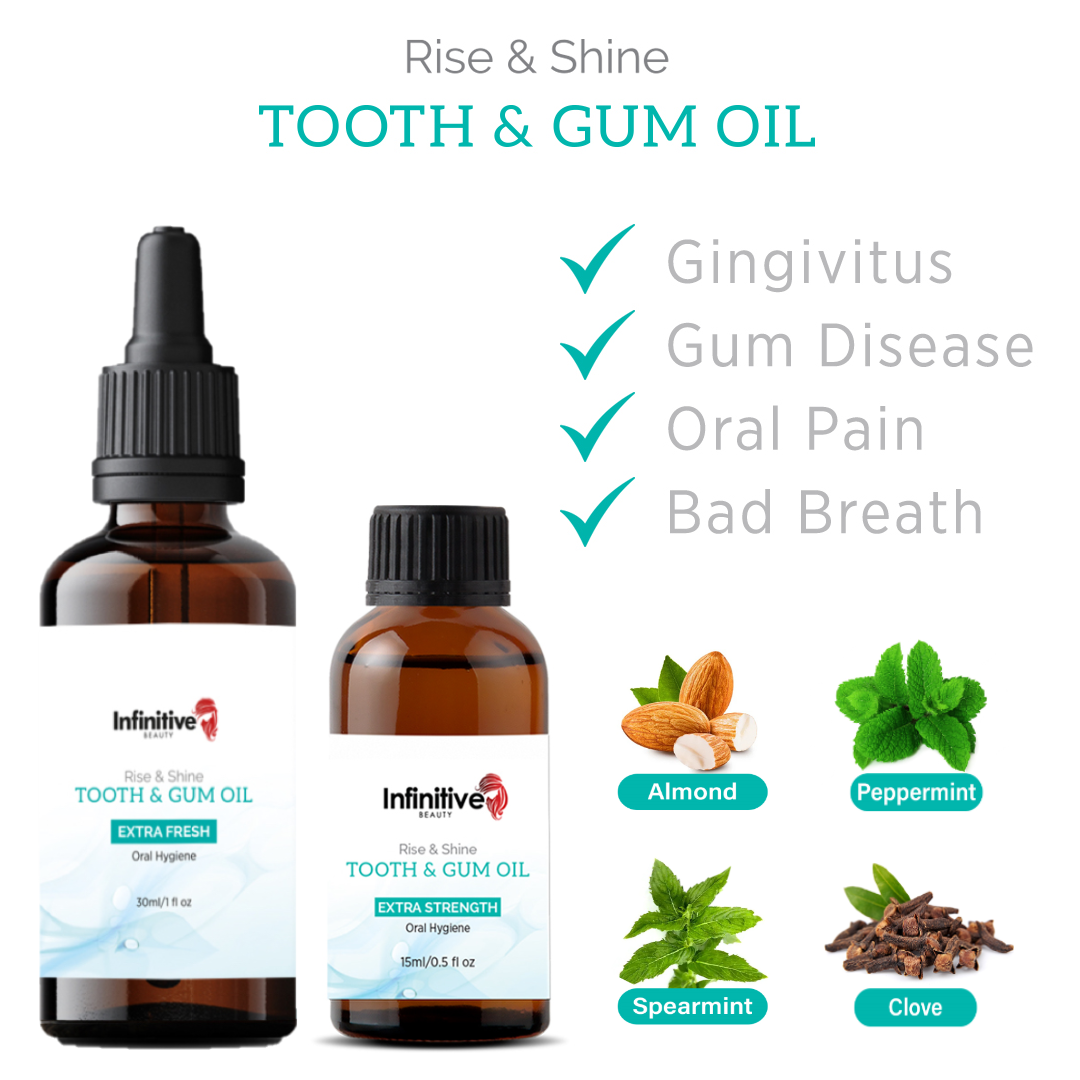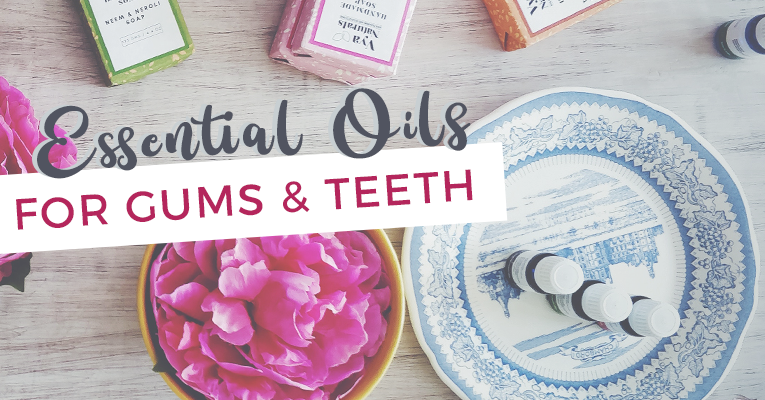Best Oil For Teeth And Gums
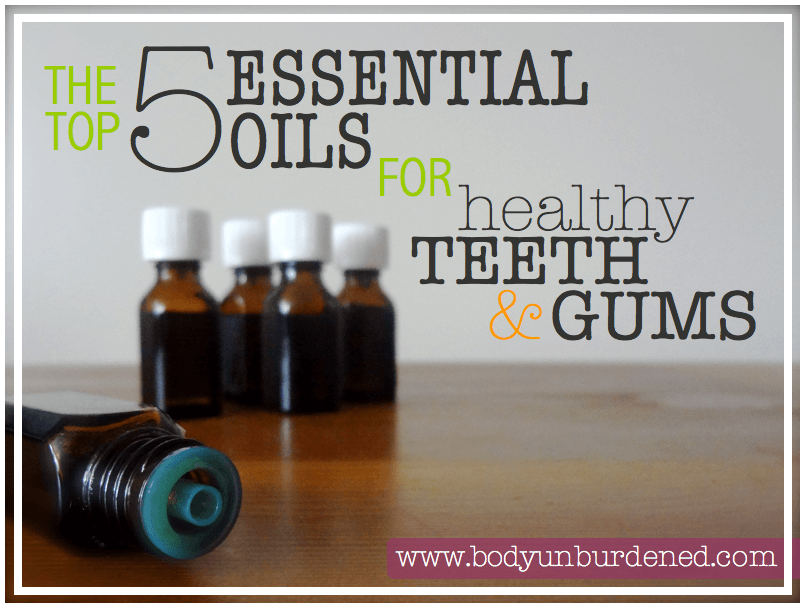
Imagine a morning ritual, not just of brushing and rinsing, but of nurturing. The soft glow of dawn illuminates a small amber bottle, its contents promising a gentle yet powerful transformation for your oral health. The aroma, subtle and earthy, hints at the natural bounty held within, ready to unlock a brighter smile and healthier gums.
This article explores the burgeoning interest in using natural oils for oral health, focusing on identifying the best oils for teeth and gums and examining the scientific basis for their purported benefits. It delves into the properties of various oils, practical application methods like oil pulling, and expert opinions on their effectiveness as complementary oral hygiene practices.
A Time-Honored Tradition: Oil Pulling's Resurgence
The practice of oil pulling, an ancient Ayurvedic technique, has experienced a remarkable resurgence in recent years. Dating back thousands of years, this method involves swishing oil in the mouth for a specific duration, typically 10-20 minutes, to purportedly detoxify the oral cavity and improve overall health. The renewed interest stems from a desire for natural, holistic approaches to well-being and anecdotal evidence of its positive effects.
The principle behind oil pulling lies in the oil's ability to attract and bind to bacteria, plaque, and other debris present in the mouth. As you swish, the oil emulsifies, effectively trapping these harmful substances. Upon spitting out the oil, these toxins are eliminated, leaving the mouth cleaner and healthier.
Unlocking Nature's Pharmacy: The Best Oils for Oral Health
While various oils have been used for oil pulling and oral care, certain oils stand out due to their specific properties and supporting research. Coconut oil, tea tree oil, and sesame oil are among the most popular and well-regarded choices.
Coconut Oil: The Star Player
Coconut oil has emerged as a frontrunner in the realm of oral health due to its high concentration of lauric acid. This medium-chain fatty acid possesses potent antimicrobial and anti-inflammatory properties.
Studies have shown that lauric acid can effectively inhibit the growth of harmful bacteria like Streptococcus mutans, a primary culprit in tooth decay. A study published in the Journal of Contemporary Dental Practice found that coconut oil was as effective as chlorhexidine, a common antiseptic mouthwash, in reducing S. mutans levels in saliva.
Furthermore, coconut oil’s anti-inflammatory properties can help soothe inflamed gums and reduce symptoms of gingivitis. It's also gentle and palatable, making it a suitable option for individuals with sensitive mouths.
Tea Tree Oil: Nature's Antiseptic
Tea tree oil, derived from the leaves of the Australian tea tree (Melaleuca alternifolia), is renowned for its powerful antiseptic and antifungal properties. It contains terpinen-4-ol, a compound known for its broad-spectrum antimicrobial activity.
Tea tree oil can be particularly beneficial in combating gum disease and infections. Research indicates that it can help reduce plaque, gingivitis, and bleeding gums. However, tea tree oil should always be used with caution and diluted appropriately, as it can be irritating if used undiluted.
It’s crucial to choose a 100% pure tea tree oil and to perform a patch test before applying it to the gums to check for any adverse reactions. Many experts recommend adding a single drop of tea tree oil to a carrier oil like coconut oil for safe and effective use.
Sesame Oil: The Traditional Choice
Sesame oil has been a staple in Ayurvedic medicine for centuries, primarily used for oil pulling. While research on sesame oil specifically for oral health is less extensive than that of coconut oil, traditional use and some studies suggest its benefits.
It's believed to help remove plaque and bacteria, improve gum health, and even strengthen teeth. Some studies have shown that sesame oil can be effective in reducing Streptococcus mutans counts and improving overall oral hygiene. The high antioxidant content of sesame oil also contributes to its potential benefits.
Beyond the Big Three: Other Oils to Consider
While coconut oil, tea tree oil, and sesame oil are the most widely discussed, other oils have also garnered attention for their potential oral health benefits. These include olive oil, sunflower oil, and neem oil.
Olive oil, rich in antioxidants and anti-inflammatory compounds, may help reduce gum inflammation. Sunflower oil, with its high vitamin E content, can contribute to overall gum health. Neem oil, known for its potent antimicrobial properties, is traditionally used in India for various oral hygiene purposes.
Integrating Oils into Your Oral Hygiene Routine
To incorporate oils into your oral hygiene routine, start with oil pulling using coconut oil or sesame oil. Swish about a tablespoon of oil in your mouth for 10-20 minutes, ensuring to push and pull the oil between your teeth.
Spit the oil into a trash can (not the sink, as it can clog drains) and rinse your mouth thoroughly with water. Follow with your regular brushing and flossing routine.
For targeted application, dilute tea tree oil with a carrier oil like coconut oil and apply a small amount to your gums using a cotton swab. Always be mindful of potential sensitivities and adjust the concentration accordingly.
Expert Perspectives and Considerations
While the use of oils for oral health shows promise, it's essential to approach it as a complementary practice and not a replacement for conventional dental care. Dentists and other healthcare professionals generally recommend maintaining a consistent oral hygiene routine that includes brushing twice daily, flossing, and regular dental checkups.
According to the American Dental Association (ADA), while some studies suggest potential benefits of oil pulling, more research is needed to confirm its effectiveness. The ADA emphasizes the importance of evidence-based practices and recommends consulting with a dentist before making significant changes to your oral hygiene routine.
It's also crucial to remember that individual results may vary, and what works for one person may not work for another. If you experience any adverse reactions, such as irritation or allergic reactions, discontinue use and consult with a healthcare professional.
A Natural Path to a Healthier Smile
The exploration of natural oils for oral health opens up exciting possibilities for enhancing our well-being. While not a replacement for traditional dental care, the mindful integration of oils like coconut oil, tea tree oil, and sesame oil can offer a gentle yet effective way to nurture our teeth and gums.
By embracing these age-old practices with informed awareness and consulting with dental professionals, we can embark on a journey towards a healthier, brighter smile, rooted in the wisdom of nature.
Ultimately, the best oil for your teeth and gums is the one that aligns with your individual needs, preferences, and professional dental advice. It is important to note that although many people incorporate this practice into their routine it is important to always follow up with your dentist for dental exams.



